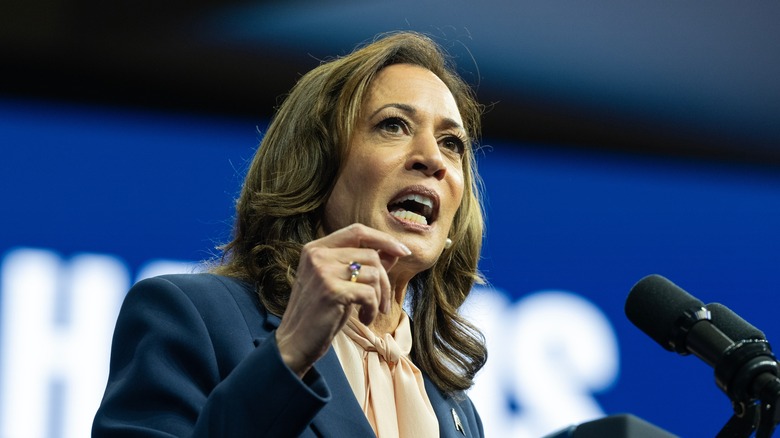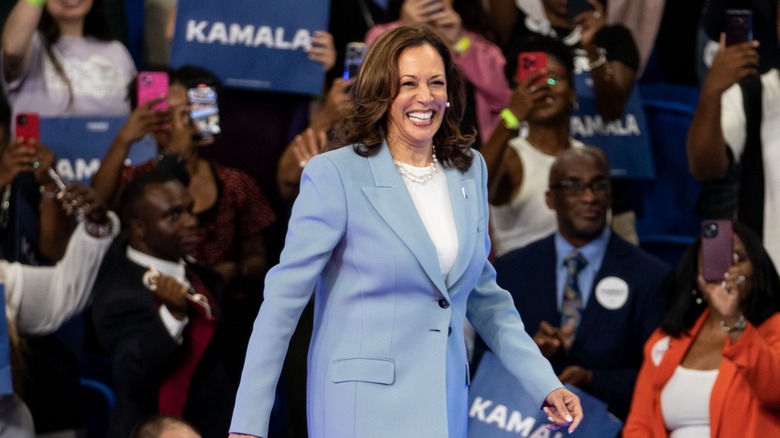What Kamala Harris Was Like As A Kid, According To Her Childhood Friend
Kamala Harris laid bare a poignant snapshot of her youth when she first ran for president in 2019. "There was a little girl in California who was part of the second class to integrate her public schools, and she was bussed to school every day," Harris revealed (via ABC News), "and that little girl was me." As the official Democratic presidential nominee for 2024, more details of her formative years came to light. Her childhood friend, Carole Porter, gave a tearful and telling interview to NPR in July of that year, sharing memories of growing up with the girl who would eventually become America's first female, Black, and South Asian American vice president.
Speaking with NPR's Ari Shapiro, Porter recalled that Harris valued her heritage from an early age: "She was very proud of it ... her Indian heritage, her family, her name. And she'd always correct people on how to pronounce her name."
When it came to her biracial identity, Porter shared that Harris' upbringing was grounded in a clear understanding of how society viewed her. To Shapiro, Porter said: "We are Black people in America because of the false construction of race to divide people. We all have to go along a line somewhere. And so in America, we're considered Black women, and that's how our mothers raised us because that's what they knew we would be seen as."
The California neighborhood that shaped Kamala
Kamala Harris' rise to political prominence irrefutably exists in the context of her upbringing. During the conversation with NPR, Porter recollected their "little redline neighborhood in Berkeley, California." She described how the Harris women – mother Shyamala, sister Maya, and Kamala herself — lived in a modest bungalow apartment above a daycare center. The nursery was run by a revered figure in the neighborhood, Mrs. Shelton who, according to Porter, looked after the Harris women. When Maya fell pregnant as a teenager, the family rallied together to support one another. Porter explained: "Maya had a child who was raised by Kamala, Shyamala and Maya. ... It was very common, it was important. That's how we live. That's what we do in our communities. .. we raise, and we lift up, and we take care of our own."
Influential faces were also an important part of this close-knit community. Berkeley's first Black mayor, Warren Widener, lived across the street from Harris and Porter. Huey Newton, co-founder of the Black Panther Party, was another regular visitor. Porter believes Berkeley was instrumental in defining the Harris known to the American people: "It's not about 'Kamala's going to be president.' But it's about Kamala having the opportunity to share some really strong, deeply rooted, important values and beliefs with other people that she was raised with – that we were raised with." Growing up around such prominent role models, it's not difficult to see why the little girl on the bus would come to be a defining figure in modern American politics.

